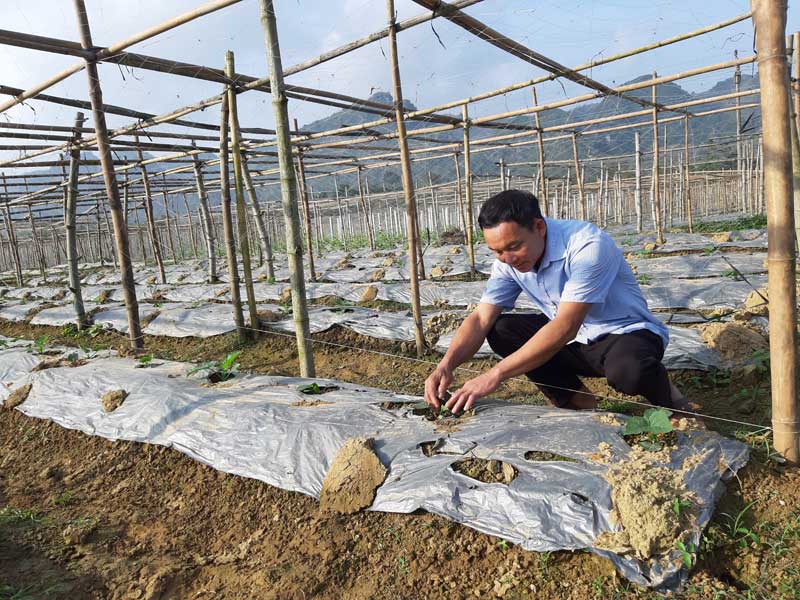


 Farmers check the growth of wax gourd plants
in Bua Sao field, Du Sang commune (Kim Boi).
Farmers check the growth of wax gourd plants
in Bua Sao field, Du Sang commune (Kim Boi).
The cooperation with businesses in production and consumption of agricultural products in Du Sang has been carried out effectively in recent years. Farmers now cultivate three crops per year.
Chairman of the commune’s People Committee Bui Thanh Suot said over the years, the commune has worked with businesses to form production chains, thus raising the value of products and stabilizing the consumption market.
At present, four companies are investing in production and sale of farm produce in the commune, which are the Nhiet Dot, Hai Mui Ten Do, Number One and the Kim Boi Cooperative. The companies and cooperative provide farmers with plant varieties, capital and agricultural materials, and buy all products. The major crops include bitter melon, pumpkin for seeds, and wax gourd.
The commune has 519 hectares of agricultural land, most of which has been converted to growing crops with higher value than rice. Farmers have gradually become familiar with new technologies, thus ensuring stable yield and reaping high economic value.
Wax gourd output is currently stable at about 60 tonnes/hectare. Selling prices are relatively high in recent years, sometimes up to 16,000 VND/kg at the beginning of the season, while the average prices range between 8,000 VND and 10,000 VND per kg. With bumper harvest, farmers can earn hundreds of millions of VND per hectare. The cultivation of food crops and vegetables under the production chain model yields a value 5-6 times higher than that of rice cultivation.
In addition to production chains, the commune has zoned specific production areas and assisted people to renovate home gardens to plant trees with high economic value as well as develop cattle and poultry raising for higher economic efficiency.
The commune hopes the State will invest in irrigation infrastructure to ensure stable water supply for production as part of requirements in building new-style rural areas./.